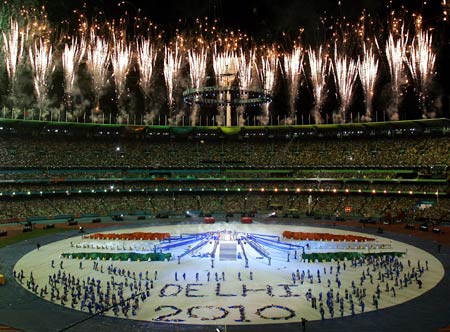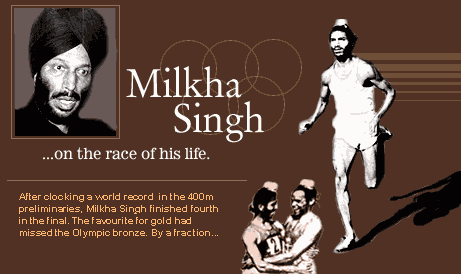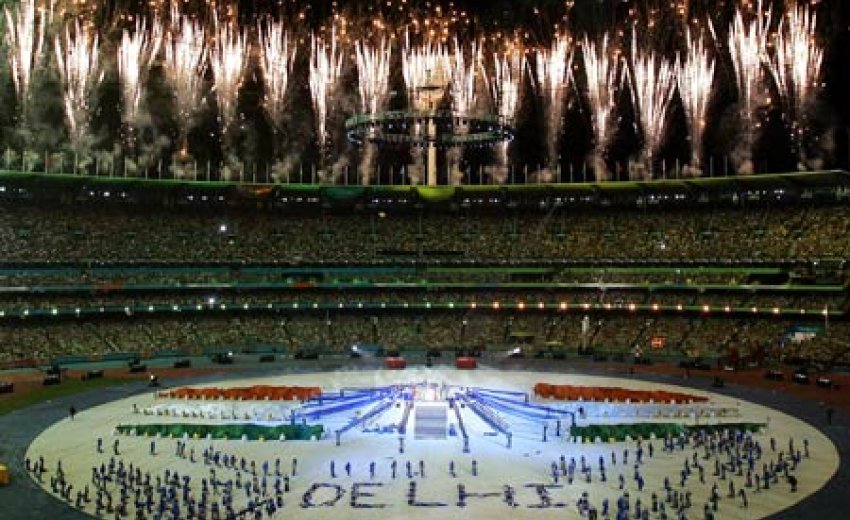
New Delhi— From Monday's Globe and Mail Oct. 03, 2010: Never mind owning the podium, India will be happy to break its track-and-field medal drought this year.
 The first – and last – Indian to win an athletics competition at any Commonwealth Games is the legendary “Flying Sikh,” Milkha Singh, who took gold at Cardiff in 1958. India has fared better away from the track, and hopes for gold in other sports, such as shooting, wrestling, and badminton. But that does not satisfy Mr. Singh, who at 81 years old still serves as a fixture in the country’s sports establishment.
The first – and last – Indian to win an athletics competition at any Commonwealth Games is the legendary “Flying Sikh,” Milkha Singh, who took gold at Cardiff in 1958. India has fared better away from the track, and hopes for gold in other sports, such as shooting, wrestling, and badminton. But that does not satisfy Mr. Singh, who at 81 years old still serves as a fixture in the country’s sports establishment.
He remembers the gruelling practice that went into his victory in the sprint, which was then 440 metres, and the joyful reaction from his country. He wept on the podium.
When his government offered him a reward, the penniless orphan requested a one-day national holiday. Now, he wonders why the next generation of athletes does not work so hard, or show the same selflessness – and he’s especially galled by the corruption and fancy trappings on display, such as the notorious $16-million helium balloon used for the opening ceremonies.
You worked very hard for the medal. What motivated you?
I had so much fire in my heart to learn and do well for my country. ... I started training myself, used to run six hours every day, and then would test myself every 10 days to see if I have been able to better the record. If not, I would work harder. During those days I would faint and even vomit blood but that didn’t deter me or stop me from running. I used to sweat a bucket every day.
Do you feel that athletes today have the same willpower?
No, they don’t, even today whenever I am invited during the [training] camps I tell all that they can get what they want and bring the medal home if they have strong willpower and the passion to do hard work. The reasons for them not to do it are because they have not seen the hard times we had. We used to sleep on the floors and drink hot [unrefrigerated] water from the taps, which the athlete of today can’t even think of doing. They have no respect for the coach, they don’t want to practice, keep giving excuses. Unlike for us, the coach’s word was the last word. Now they only want facilities and money.
Lately the focus has been on making opening and closing ceremony a spectacular show that everyone will remember. Do you think this is a departure from tradition?
I am against so much money being spent on the closing and opening ceremonies. What I would have preferred though that the same money should have used for the training of the athletes, and not wasted like this.
You won gold at the Commonwealth Games in 1958 at the time when India was still recovering from the wounds of partition. Do you think that your winning the medal healed some of those wounds, or brought the country together?
The scene that I witnessed, seeing my parents killed in front of my eyes, and running away ... coming to Delhi as a refugee, alone, and living at the [train] station, my first thought was to get a job and get food for myself and not how to do my country proud. Anyone, you or me, would first think of your stomach and then your country.
We have all been reading about the allegations of corruption facing the Games. What’s your opinion about this?
Every Indian, including myself, is very saddened by what all has been happening. We are sorry that all these problems are coming. We should have started the work eight years ago and finished everything at least two or three years in advance to avoid all the problems we are facing.
(This interview has been edited and condensed)
